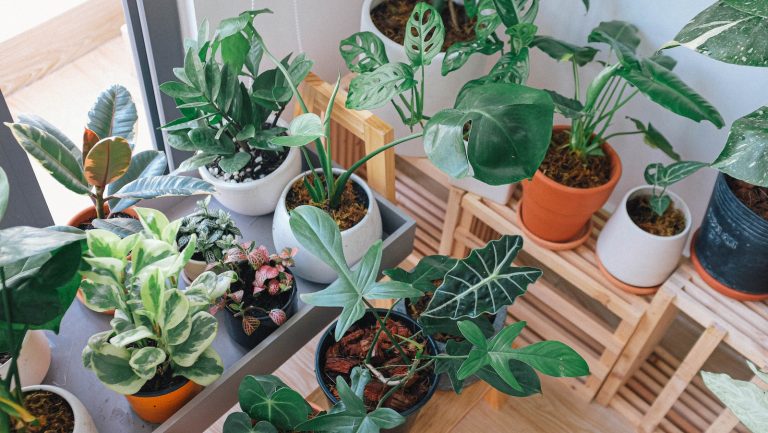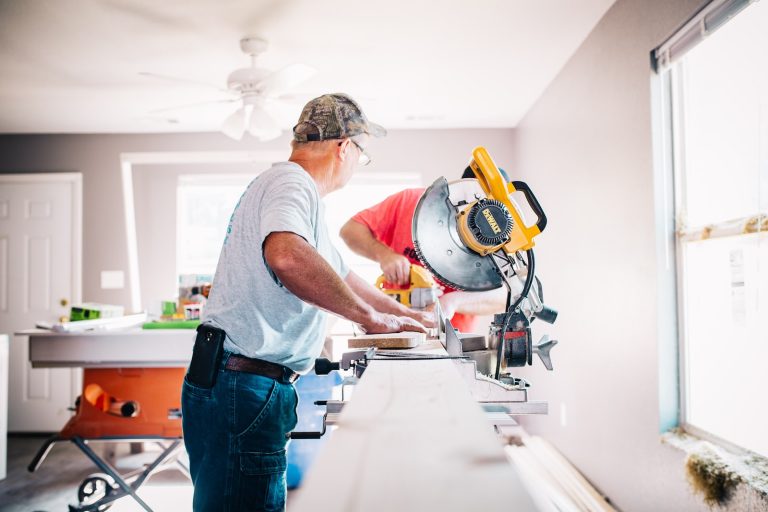Safest Ways of Disposing of Household Waste

Are you tired of wondering about the safest ways to dispose of your household waste? Do you want to know what steps you can take to reduce your carbon footprint and keep your family protected from harmful chemicals? Look no further! In this blog post, we’ll explore some of the easiest and most effective ways of disposing of household waste without compromising safety or the environment.
Whether it’s recycling, composting, or using eco-friendly products, we’ve got you covered with tips that will help make your home a greener place. So, let’s dive in and start taking action towards a more sustainable future!
Household Waste Overview
As anyone who’s ever looked at a garbage can knows, not all household waste is the same. There are many different types of waste, each with its own unique characteristics and dangers. In order to safely and effectively dispose of household waste, it’s important to first understand the different types of waste and how to properly handle them.
The most common type of household waste is general rubbish, which includes items like food wrappers, empty containers, and used tissues. General rubbish is typically not hazardous and can be disposed of in your regular trash can.
However, there are some items that should not be disposed of in your regular trash can, such as batteries and electronic waste. These items should be recycled or disposed of at a special facility designed to safely handle them.
Another type of household waste is hazardous waste. Hazardous wastes are liquids, solids, or gases that can harm people or the environment if they are not properly handled. Common examples of hazardous wastes include paint thinners, cleaning fluids, motor oil, and pesticides. Hazardous wastes must be disposed of at a special facility designed to safely handle them – they should never be disposed of in your regular trash can!
Lastly, there is medical waste. Medical wastes are any wastes that come from health care procedures or facilities, such as hospitals or clinics. Medical wastes can include anything from used needles to soiled bandages to expired medications.
Medical wastes must be disposed of at a special facility designed to safely handle them – they should never be disposed of in your regular trash can.
It’s important to remember that the way we handle our household waste can have a significant impact on our environment. By taking the time to learn about the different types of household waste and how to properly dispose of each, we can help keep our environment clean and safe for generations to come.
Different Types of Waste
There are many different types of waste that can be generated from households. Some of the most common types of waste include:
-Food waste
-Yard waste
-Paper and cardboard
-Glass
-Plastic
-Metal
Each type of waste has its own set of characteristics and requires specific disposal methods to ensure it is disposed of safely and correctly. Here is a brief overview of each type of waste and how it should be disposed of:
- Food Waste: Food waste should be composted or thrown away in the garbage. If you have a garbage disposal, you can also grind up food waste to dispose of it down the drain. DO NOT put food waste down the storm drains as this can pollute waterways.
- Yard Waste: Yard waste includes leaves, grass, twigs, and branches. It can be composted, used as mulch, or thrown away in the garbage. DO NOT burn yard waste as this is a health hazard.
- Paper and Cardboard: Paper and cardboard can be recycled or thrown away in the garbage. Be sure to remove any food or grease stains before recycling paper or cardboard items as these cannot be recycled.
- Glass: Glass can be recycled or thrown away in the garbage. Broken glass should be wrapped up securely before being disposed to prevent injury.
- Plastic: Plastic can be recycled or thrown away in the garbage. Some plastics are not recyclable, so make sure you separate out those items and throw them away in the garbage.
- Metal: Metal can be recycled or thrown away in the garbage. Paper labels should be removed from metal containers before recycling as they cannot be recycled with the metal.
It is important to understand which types of materials can and cannot be recycled, as well as the local regulations for each type of waste to ensure you are disposing of your waste properly and safely.
Why is Disposing of Waste Important?
When it comes to disposing of household waste, it is important to do so in a safe and responsible manner. There are a number of reasons why this is the case:
- It helps to protect the environment: When waste is disposed of in an irresponsible way, it can end up polluting the environment. This can lead to a number of problems, such as water and air pollution.
- It helps to protect public health: If waste is not disposed of properly, it can end up contaminating food and water supplies. This can cause a range of serious health problems, including gastrointestinal illnesses and diseases.
- It helps to save resources: When waste is disposed of responsibly, it can be recycled or reused. This helps to conserve valuable resources, such as water and timber.
The Three R’s: Reduce, Reuse, Recycle
When it comes to disposing of household waste, the three R’s – reduce, reuse and recycle – are the safest and most environmentally friendly approach. Reducing the amount of waste, you create in the first place is always the best option, as it requires no additional processing or resources. For example, you can reduce waste by opting for reusable products instead of disposable ones, or by composting food scraps.
Reusing items that would otherwise be disposed of is also a great way to reduce waste. For example, you can use old clothing and towels as rags for cleaning or repurpose empty food containers as storage containers.
Finally, recycling is another excellent option for reducing household waste. Most communities have programs in place for recycling common household items like glass, plastic and paper. By recycling these items instead of throwing them away, you’re helping to conserve resources and prevent pollution.
Strategies for Disposing of Hazardous and Nonhazardous Waste
There are many ways to dispose of household waste, but not all of them are safe. Here are some tips for disposing of hazardous and non-hazardous waste in the safest way possible:
- Hazardous waste should never be thrown in the garbage. This includes things like cleaning chemicals, paint, motor oil, and batteries. Instead, Hazardous Waste Disposal Centers should be used. To find the nearest one, visit Earth 911 and type in your zip code.
- Medicine should also never be thrown in the garbage. old medicine can be extremely harmful if it falls into the wrong hands, so it’s important to dispose of it properly. Most pharmacies have a take-back program where you can return unused or expired medication. You can also check with your local police department to see if they have a drug take-back program.
- Sharps (needles, lancets, etc.) Should be disposed of in a Sharps container, which can be purchased at most pharmacies. Once the container is full, it can be taken to a medical waste facility for proper disposal.
- Electronics should not be thrown in the garbage either. TVs, computers, and other electronics contain harmful chemicals that can leach into the ground and contaminate soil and water supplies. Many communities have e-waste recycling programs where you can drop off old electronics to be properly disposed of. To find an e-waste recycling center near you, visit e-cyclingcentral.com.
- Nonhazardous waste, such as paper products and plastic items, can be recycled. Many communities have curbside recycling programs or drop-off centers that accept recyclable materials. For more information on your local recycling options, visit Earth 911’s Recycling Search tool.
How to Compost Biodegradable Waste Safely
While there are many ways to dispose of household waste, composting biodegradable waste is one of the safest methods. Composting is a process that allows organic materials to break down into a nutrient-rich soil amendment.
To compost biodegradable waste safely, it is important to follow a few simple steps. First, choose an appropriate location for your compost pile or bin. It should be in a well-ventilated area and away from any structures or trees. Next, add your organic materials to the compost pile or bin, making sure to mix them evenly. Once you have added all of your materials, cover the compost pile or bin with a tarp or lid to help retain moisture and heat.
Finally, turn the compost pile or bin periodically to aerate it and help speed up the decomposition process. If done correctly, composting is a safe and effective way to dispose of biodegradable waste.
Benefits of Proper Disposal of Household Waste
There are many benefits to proper disposal of household waste. Perhaps the most important benefit is that it helps to protect the environment. When garbage is improperly disposed of, it can pollute the air, water, and soil. This can lead to serious health problems for both humans and animals.
Proper disposal of household waste can also help to save money. When garbage is not properly disposed of, it often ends up in landfills. These landfills must be maintained, and this costs taxpayers money. In addition, when garbage is not properly disposed of, it often ends up as litter on the ground or in waterways. This litter must be cleaned up, and this also costs taxpayers money.
Conclusion
Properly managing household waste is essential to ensure the health of our environment and ourselves. Knowing what types of waste should go into which bin, composting where possible, bringing unwanted items to a donation center or recycling facility as well as researching eco-friendly alternatives for hazardous materials are all key steps in properly disposing of one’s domestic trash.
With these suggested methods we can rest easy knowing that we are doing our part in reducing potential environmental damage caused by improper disposal of household waste.

Emma is a talented writer and enthusiastic gardener who shares her passion for plants and gardening on HomeGardenBlog.com. With years of experience in home gardening, Emma has become an expert in everything from planting and harvesting to pest control and soil management.






